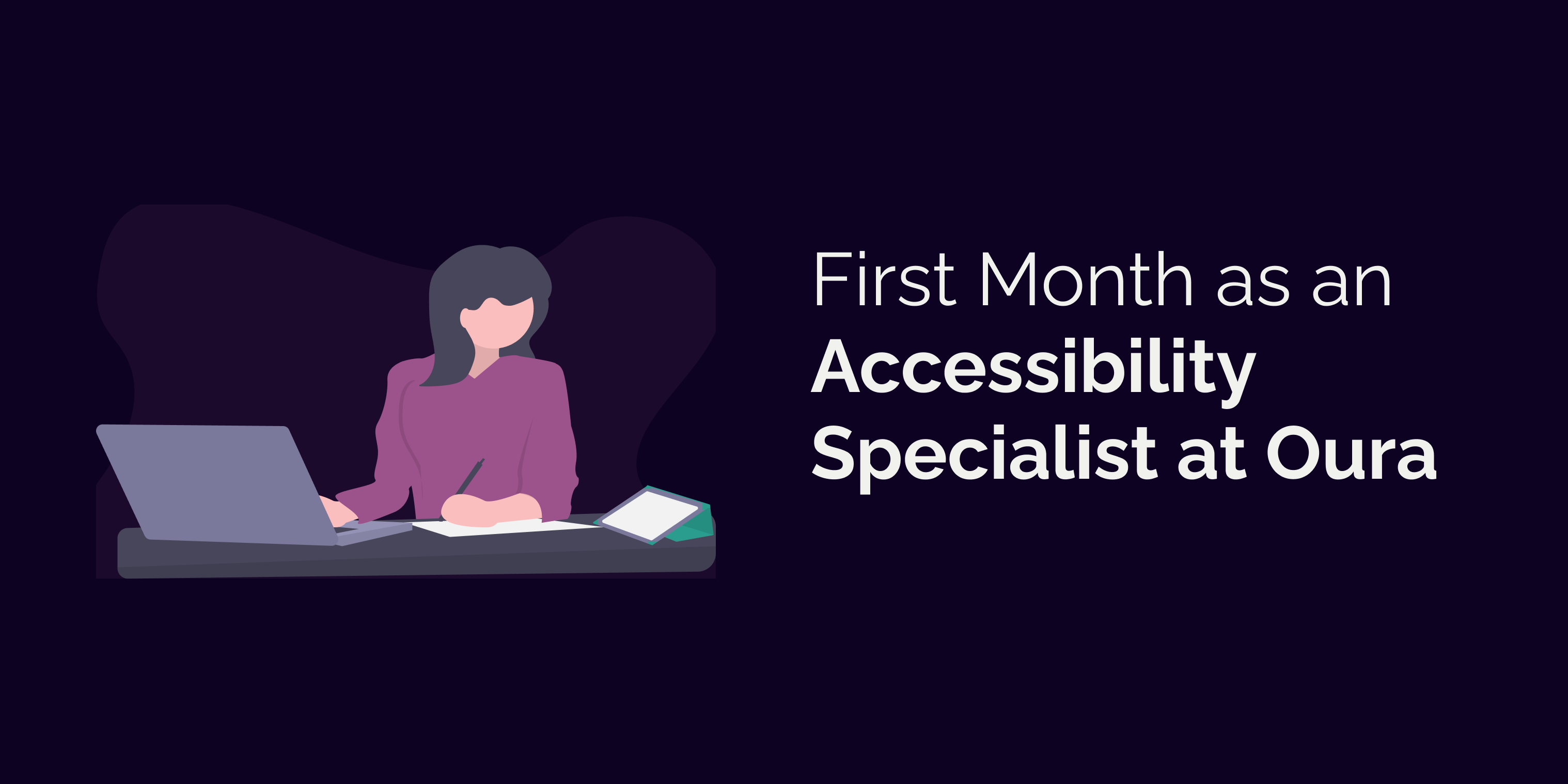First Month as an Accessibility Specialist at Oura
Reading time: about 3 minutes
Published

Listen to this blog post, read by Eevis:
So, I joined Oura Health in October, and it's been a little bit over a month now. My role is an accessibility specialist, and I'm the first person to be hired in the company in such a role.
During the past month, we've had busy times. We launched the new Gen3 ring, and it has brought a bustle. On the other hand, it's been super cool to join the company during such a time.
From an accessibility perspective, I know that we aren't there yet. We have a long road to go to change things, but one thing I'm excited about is that there is a will to do that.
In this blog post, I'll share some initial thoughts and feelings from the past month. I'm super thrilled about what is coming, and I'm feeling happy that I made this change.
I Don't Have to Sell Myself or Accessibility
One of the best things has been realizing that I don't need to sell myself to do accessibility-related work anymore. It has been given due to my role. It might sound obvious, but it is not for me.
You see, I've been in a position before where I've expressed that I want to do more accessibility-related work. I've been very vocal about that. In the end, I've still been the front-end dev first and foremost, who doesn't have time to look into making the results of my work accessible. If accessibility didn't take too much time, it was ok to think about, but there were never actual resources for that.
Those situations happened when I was working in a consultancy. I was sold as a front-end developer, and that was what the customer was paying for. They didn't have accessibility in their roadmaps, so they didn't want to spend money on that. And myself being a consultant, well, I cost money.
So I've been super happy that whenever I'm talking about changing things due to accessibility reasons, just saying that is enough. I don't have to justify to people how they benefit from it.
That means a lot. It has allowed me to use my skills and energy to actually do something without having to spend a long time selling the idea.
I'm Expected to Concentrate on Accessibility
Continuing from the previous point, I'm super happy that I can concentrate on accessibility. It's actually expected of me. I kind of knew that from day one, but after a couple of weeks, I had this moment when it really hit me. I'm not the front-end developer anymore, but the one who does accessibility.
That also means that I don't need to agree to complete something first, and then, if there is still time, I can look into accessibility-specific matters. No, I get to do it right away. That's expected of me.
One example is that right now, I'm doing an audit of one of our services. I even got my own epic to do that. And it feels good. Maybe you might think that hey, that's nothing special. Well, for me, it is. Coming from a situation where I didn't get to do what I wanted, this feels amazing.
I'm not alone
Another thing that's great at Oura is that I'm not alone in my accessibility mission. There are people across the company who understand the value of accessible services and that we need to do better. Yes, as mentioned, there's still a lot to do, but I feel that I'm not alone in this.
Heck, we even have this part in our values:
Humanity is present in all that we do—connecting with kindness and empathy. We build products and culture that celebrate and support uniqueness, inclusivity, and diversity, where everyone belongs. We meet people where they are, as they are, and prioritize accessibility.
I've had so many great conversations with people during the past weeks. And what has surprised me the most was that people were waiting for me to start. In multiple different conversations, I've heard that "Oh, I've been waiting for you to join! I have so many questions for you!" That feels just amazing.
Wrapping Up
So, as you might have guessed, I'm excited. There's certainly so much to do, but I get to work with talented people who care about their users. I believe that in the future, we can really say that our data is accessible, if not for all, then at least for a wider range of people.